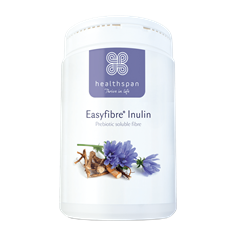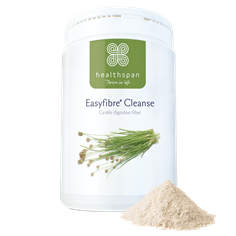Fibre Supplements
Fibre is a type of carbohydrate that our digestive system can't break down. Fibre plays a key role in keeping the digestive system healthy, and contributes to proper immune system and cardiac function.
In the UK, the current recommended daily fibre intake is 30g, but the National Diet and Nutrition Survey shows that most people do not eat enough. However, fibre supplements, such as those containing inulin or psyllium husk, can help.
Healthspan customer reviews
Fibre guides

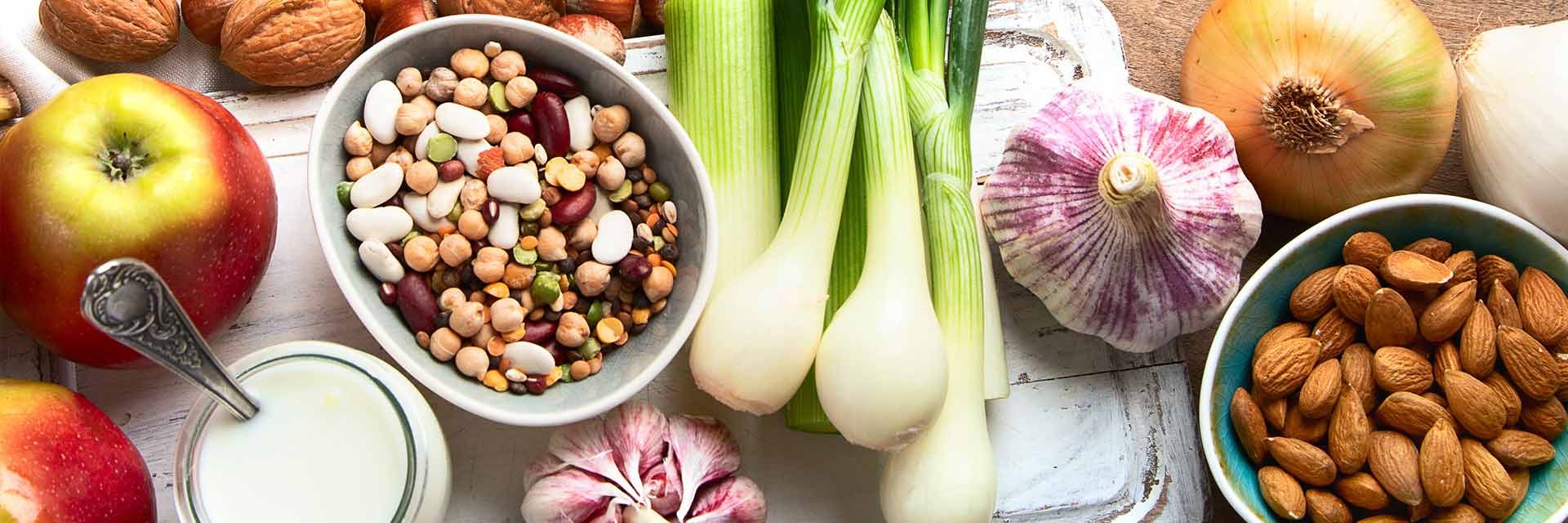
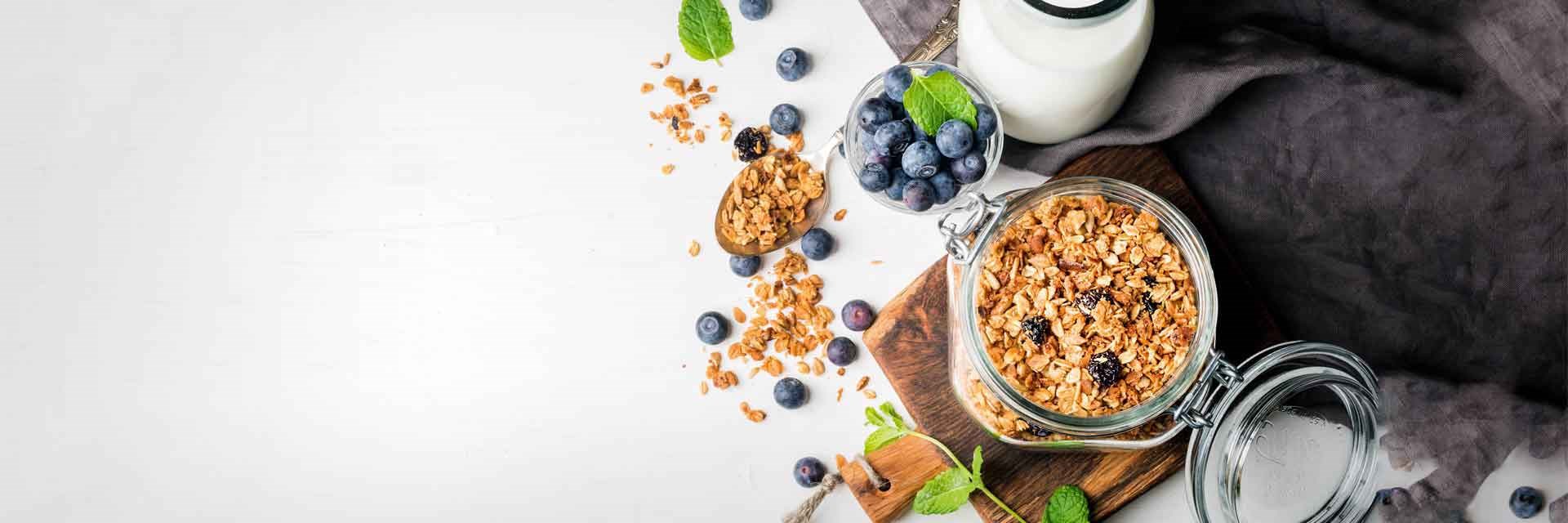
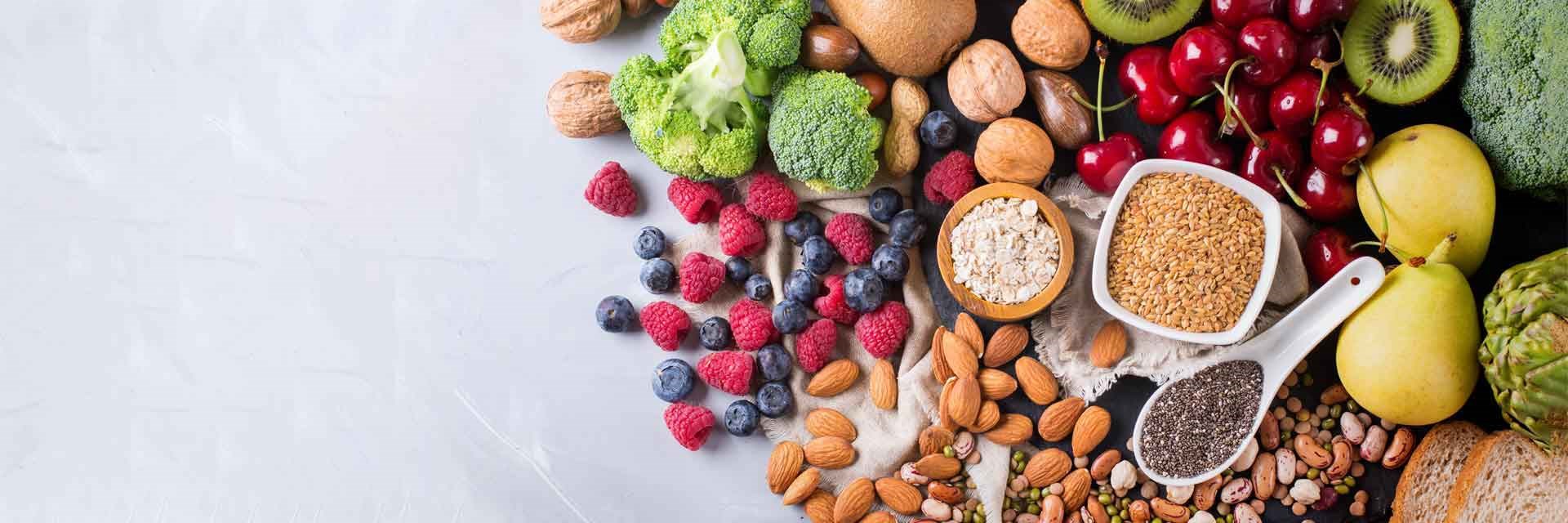
What is fibre?
Fibre is a group of carbohydrates that forms the indigestible part of plants. Our body lacks the enzymes needed to break these carbohydrates down, so they pass through our digestive system. There are two types of fibre: soluble and insoluble.
- Soluble fibre dissolves in water and forms a gel-like substance.
- Insoluble fibre does not dissolve in water and passes through the digestive system relatively intact.
Read more about what fibre is and why we need it.
How does fibre support health?
Fibre is important for our health in many ways, and plays a key role in keeping our digestive systems healthy. Soluble fibre can help lower cholesterol and blood sugar levels, while insoluble fibre adds bulk to the food waste, which may help to speed its passage through the gut and prevent constipation.
Foods high in fibre help you to feel full for longer, and can therefore help with weight control. Fibre helps to maintain a healthy cardiovascular system, and also contributes to the normal functioning of the immune system by stimulating the growth of 'friendly bacteria' in the gut.
Helps support heart health
Fibre helps to maintain normal blood lipid levels and a healthy cardiovascular system, thereby lowering the risk of high cholesterol and heart disease.
Helps regulate blood sugar
Fibre can prevent diabetes – or help people with diabetes manage the disease – by contributing to the maintenance of normal blood sugar levels. It does this by slowing the absorption of carbohydrates.
Helps to manage weight
Fibre adds bulk to foods and helps maintain normal blood sugar levels, making you feel fuller for longer and aiding weight loss.
Helps support the digestive system
Fibre helps to move food waste through the digestive system and also provides prebiotics, which feed the helpful bacteria in the gut. Find out more about the role of prebiotics. A diet high in fibre can help to prevent constipation and irritable bowel syndrome (IBS).
How to start a high-fibre diet?
It's fairly easy to get enough fibre from our diet. Fibre is found in all plant foods, including fruits, vegetables, beans and legumes, nuts and seeds, and wholegrains. Foods high in soluble fibre include oats, rye, barley, nuts and seeds, beans and legumes, fruits such as apples, bananas and berries, and vegetables such as broccoli and artichokes.
Foods high in insoluble fibre include wheat bran and wheat germ, oat bran, beans and legumes, berries, wholegrains and dried fruit.
Here are some high-fibre recipes to get you started.
It's important to increase the amount of fibre in your diet slowly. Adding too much too quickly can result in unwanted symptoms, such as bloating, abdominal pain, flatulence and loose stools or constipation. Additionally, people who suffer from IBS may find certain types of fibre make their symptoms worse.
Types of fibre supplements
For those who are struggling to get enough fibre in their diet, supplements can help, and Healthspan offers a range of different types of fibre in the form of powders and bars.
Protein bars
Healthspan's HiLo Protein Bars are available in three different flavours: chocolate and salted caramel, white chocolate raspberry and black forest gateau. These vegan bars contain between 6.9g and 7.8g of fibre (depending on the flavour) and a very low amount of sugar. They are a great on-the-go snack and also perfect for athletes wanting a boost before or during exercise.
Inulin
Healthspan's Easyfibre Inulin powder (450g) is a natural prebiotic soluble fibre made from chicory root. As a soluble fibre, it helps maintain regular bowel movements, while the prebiotics feed the 'friendly bacteria' in the gut, helping to maintain a healthy digestive system.
Psyllium husk
Easyfibre Cleanse (300g) is a fibre powder made from psyllium husks that helps to maintain smooth gut function. The husks absorb water and waste material from the digestive system, helping to clear the body of toxins. The powder can be added to smoothies and juices and sprinkled on porridge or breakfast cereals.
Fibre is a vital part of our diet and can help to prevent cardiovascular disease, diabetes and bowel problems. Many of us are not getting enough fibre in our diets, and supplements are an easy way to boost our intake.
If you need expert advice on which fibre supplement is right for you, please get in touch.








